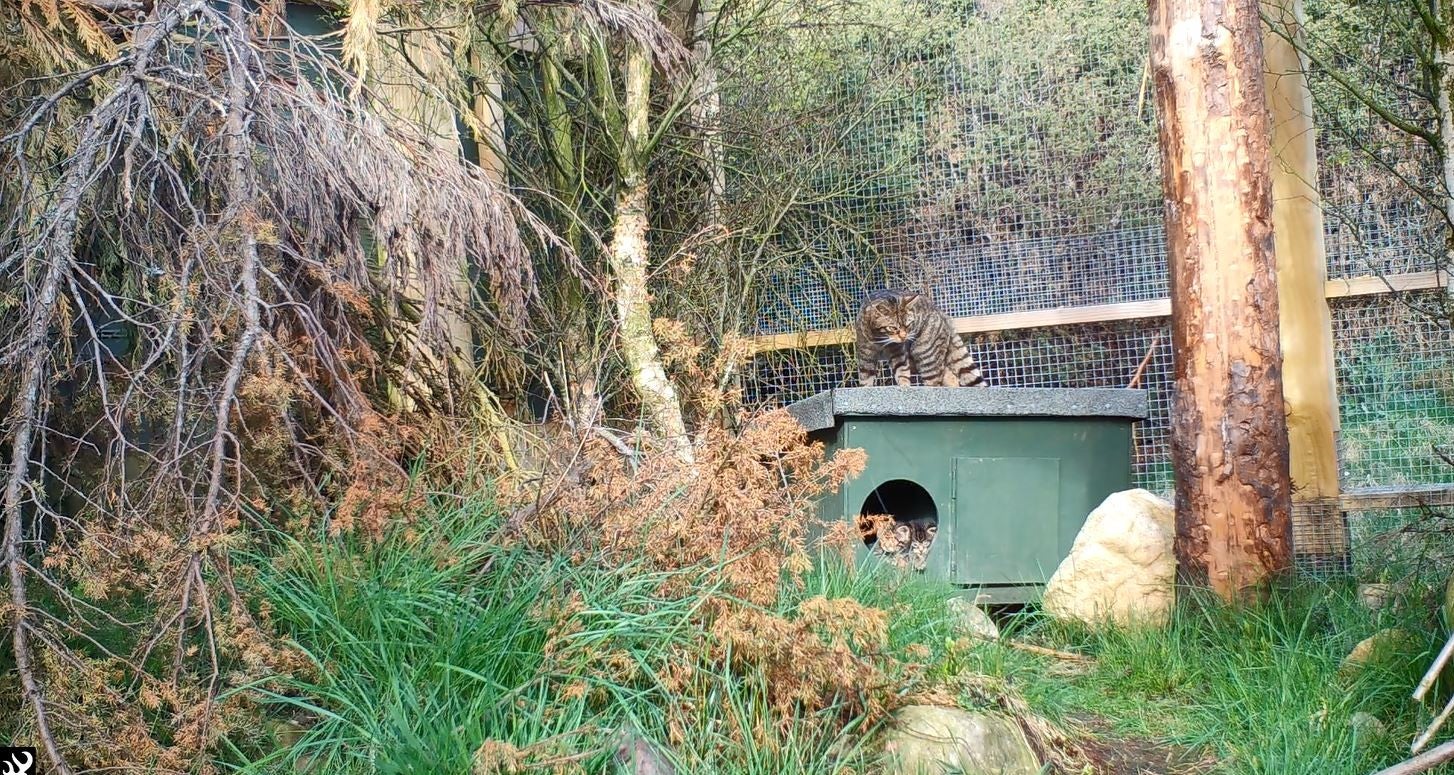Wildcats set to save species from extinction born at wildlife park
The Saving Wildcats conservation centre at the Highland Wildlife Park has welcomed eight kittens.

Your support helps us to tell the story
From reproductive rights to climate change to Big Tech, The Independent is on the ground when the story is developing. Whether it's investigating the financials of Elon Musk's pro-Trump PAC or producing our latest documentary, 'The A Word', which shines a light on the American women fighting for reproductive rights, we know how important it is to parse out the facts from the messaging.
At such a critical moment in US history, we need reporters on the ground. Your donation allows us to keep sending journalists to speak to both sides of the story.
The Independent is trusted by Americans across the entire political spectrum. And unlike many other quality news outlets, we choose not to lock Americans out of our reporting and analysis with paywalls. We believe quality journalism should be available to everyone, paid for by those who can afford it.
Your support makes all the difference.The wildcat kittens which are likely to be among the first of the species to be released into the wild in Britain have been born.
Sixteen wildcats were paired up earlier in the year the Saving Wildcats conservation centre at the Highland Wildlife Park which has now welcomed eight kittens in three litters, with hopes of more births over the coming weeks.
David Barclay, Saving Wildcats conservation manager, said: “Put simply, these kittens are the future of wildcats in Scotland.”
Habitat loss, hunting and inter-breeding with domestic cats have all taken their toll, leaving this incredible species on the brink of extinction
He added: “Decades of extensive research have shown their species is highly likely to go extinct in Britain if we do not carry out releases to restore our critically endangered wildcat population.”
So far this season Droma has had three kittens, Caol Ila also has three kittens and Torr has two kittens.
They will be sexed, microchipped, vaccinated and health checked at around eight- to 10-weeks-old.
Led by the Royal Zoological Society of Scotland (RZSS), Saving Wildcats is working with national and international experts to restore the critically endangered wildcat population by breeding and releasing them into carefully selected locations in the Cairngorms National Park.
Planning is under way for the first releases in 2023, and will be subject to receiving a translocation licence.
Dr Helen Senn, head of conservation and science at RZSS said numbers in the wild had decline as “habitat loss, hunting and inter-breeding with domestic cats have all taken their toll”.
Sarah Henshall, head of conservation at the Cairngorms National Park Authority, said it was home to more than a quarter of the UK’s rare and endangered species and described the arrival of the first wildcat kittens as a “significant milestone in our collective efforts to save this critically endangered species from extinction in Britain”.